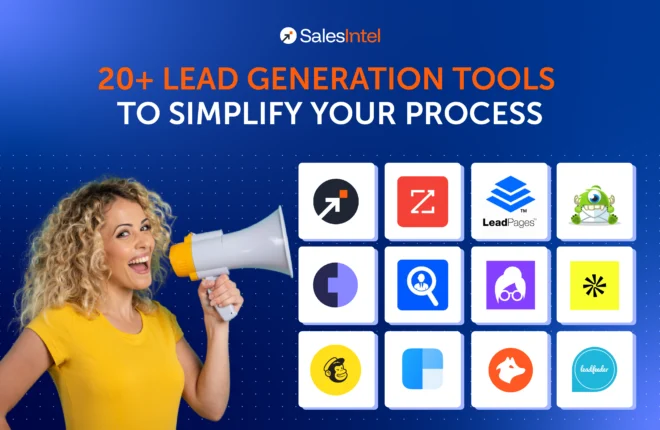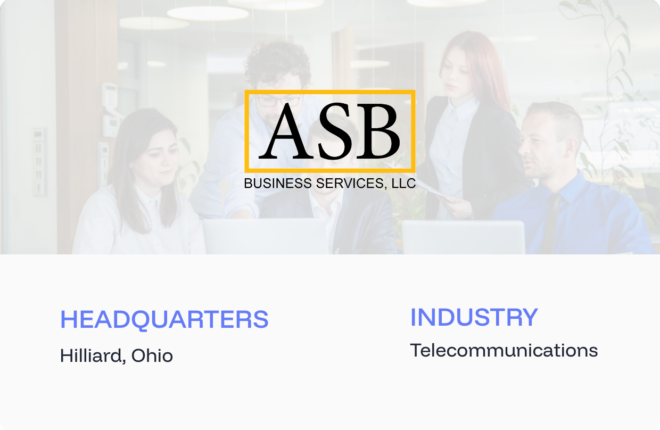You’re so excited. Your sales team has finally found the budget to invest in your B2B business database. All of your competitors have been making huge strides by purchasing verified data, and you are ready to get in on the action.
But wait a minute, before you invest in a B2B data verification service, it is important to rethink a few of the expectations that you might have for the B2B data you receive. All of these expectations are hopes that we often hear from our SalesIntel clients, and we want to dispel some of these myths so that your company can make the most of the B2B data you are so excited about investing in.
Expectation: You should fill your B2B business database with machine-verified data
We all know that AI is the future of business, so many people believe that machine-verified data will be the best, most accurate B2B data you could get for your B2B contact database.
Reality: Machine-verified data is less accurate than human-verified data
In reality, human beings still have the advantage over AI when it comes to verifying B2B business data. Many low-cost data purchasing options rely on machine-verified data scraped online, which is much less costly for the provider but ultimately less accurate for your business.
While no data provider can boast 100% accurate data, providers who sell human-verified data come much closer to reaching that goal. How? By using data that is double-checked by real people.
Expectation: Machine-verified data is cheaper than human-verified data
At the outset, companies that offer machine scraped data can offer a much lower price for data. This makes machine-verified data much more appealing for companies that want to grow their B2B business database but have a tight budget.
Reality: Machine-verified data can clog your B2B business database
Unfortunately, although machine-verified data is a much smaller initial investment, in the end, it will cost your company more than human-verified data. This is because machine-verified data is less reliable than human-verified data. It will ultimately cost your company more in wasted work hours (wrong phone numbers, bounced emails, double-checking data yourself) than it would have cost to simply invest in human-verified data at the outset.
Expectation: Human-verified data will not be updated enough
One of the great things about AI? It never sleeps. That is the idea that leads us to this next myth. Many people believe that because AI can work continuously to re-verify data that companies who offer machine-verified data will be consistently updating your B2B customer database.
Reality: Companies that offer human-verified data re-verify their data more often
Unfortunately, even though these companies who offer machine-verified data could be continuously updating your data, they aren’t. Re-verifying your data constantly is expensive and taxing to their servers.
Even when companies who use machine-verified data do re-verify your data, remember that it will be much less accurate than it would be if a human was re-verifying the data.
Companies that offer human-verified data are often re-verifying their data more often. For example, SalesIntel reverifies their customer’s B2B business database at least every 90 days. And if customers are interested in more frequent re-verification, they can customize their plans so that their entire database is re-verified every time they add a new client. On top of that, many customers also decide to be able to re-verify specific data points on-demand. This is another service that companies like SalesIntel who use human-verified data can offer.
Expectation: Contact and company data is the most useful B2B data
When you imagine purchasing valuable B2B data, you are probably thinking about contact and company data. Many companies that sell B2B data focus on contact and company data, and suggest that it is the only data your business needs.
Reality: There are three other types of B2B data that your marketing team needs in their B2B business database
Many companies emphasize the importance of contact and company data because that’s all they sell. They focus on selling contact and company data instead of giving their customers a wide range of B2B data to choose from.
However, companies that offer slightly more upscale B2B data services can give their customers a wider range of B2B data. These diverse data sets are great for customers who want to make the most out of their B2B data. Here are three types of B2B data that companies like SalesIntel offer to their customers and how these data types can help your sales team.
Firmographics
Firmographics are the demographics of your potential clients. When you receive firmographics from a company like SalesIntel, you will receive information about a company’s
- annual revenue,
- type of industry
- number of employees
- location(s)
- decision-makers
These data points can revolutionize your sales strategy because they will allow you to segment your market, targeting specific demographics in different sales efforts.
Technographics
Technographic data is just what it sounds like: data on your prospects’ technology. Now, why would that be important? Well, you can use technographic data to segment your market, making it easier for you to sell to specific demographics: those companies who use a certain accounting software, for example. Technographic data can find companies using competitor software or software that integrates with yours.
Intent data
Buyer intent data helps you find clients who have already started their purchasing journey. This data can help you determine what product the buyer is interested in and what topics they have already researched. These data points will help you tailor your sales pitch to your prospects.
Expectation: You should use your B2B business database to send as many sales emails as possible
Imagine this, you have invested in a company like SalesIntel to bolster and re-verify your B2B business database. Now, what do you do? Your first thought is probably “send out as many batches of sales emails as possible.”
Reality: Email data should be used sparingly and carefully
While that is a great instinct, you should remember that B2B contact data is best used sparingly and carefully. Rather than using a “batch and blast” email strategy, research creative solutions that will help your company make contact with customers while making sure your emails are not marked as spam. Segmentation and personalization are key.
Consider the difference a better B2B contact database can make
When you imagine investing in your B2B business database, it is important to look into the future. Don’t just think about where your business data will come from. Think about how you will make sure you are getting the highest quality B2B data possible.
Instead of viewing yourself as purchasing a list, remember you are investing in a long-term solution. Think about how and how often your data will be verified and re-verified. As you think into the future, consider the ways your company could grow long-term if you invested in data beyond company and contact data.
Visit the SalesIntel website and see the return on investment your company could achieve with a high-quality source of human-verified B2B data.





